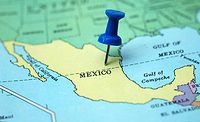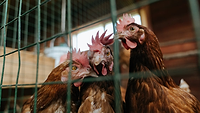FDA Updates on U.S. Food Safety Partnership with Mexico

Credit: Jorge Aguilar, Cristina Glebova via Unsplash; FDA
The U.S. Food and Drug Administration (FDA) has provided an update on its partnership with Mexico’s National Service of Agro-Alimentary Health, Safety, and Quality (SENASICA) and the Mexican Federal Commission for Protection against Sanitary Risk (COFEPRIS). According to FDA, approximately one third of all FDA-regulated human food imported into the U.S. is from Mexico, including 60 percent of fresh produce imports.
The FDA-SENASICA-Cofepris Food Safety Partnership (FSP) was established in September 2020, after six years of collaboration on fresh produce safety between FDA’s Latin America Office and Mexican food safety officials. The scope of the FSP has been expanded beyond fresh produce to include the safety of all human food. Aligned with FDA’s New Era of Smarter Food Safety blueprint, the goal of the FSP is to prevent foodborne illnesses by using modern approaches and preventive practices based on technical and scientific evidence, health surveillance, and verification measures.
On March 31, 2023, FDA, SENASICA, and COFEPRIS held a virtual FSP joint steering committee meeting, during which the committee discussed food safety accomplishments achieved in FSP’s four technical working groups:
- The Strategic Priorities Work Group is establishing and implementing information exchange and communication mechanisms between agencies on strategic issues that can potentially pose a public health risk in both the U.S. and Mexico, identified through outbreaks and other events, and during routine import and export processes
- The Laboratory Collaboration Work Group is enhancing collaboration on laboratory activities, including sharing Mexico’s whole genome sequencing (WGS) data in GenomeTrakr
- The Outbreak Response Work Group is enhancing the effective and timely response for the identification of outbreaks associated with human foods traded between both the U.S. and Mexico
- The Food Safety Training Work Group is facilitating training and communication mechanisms on food safety issues of interest, which are agreed upon by the FSP to help improve compliance with applicable requirements and regulations like the Produce Safety Rule, the Preventive Controls for Human Food Rule, and the Foreign Supplier Verification Programs (FSVP) Rule.
The workgroups reported tangible progress toward better protections for public health, particularly especially the Laboratory Collaboration Workgroup’s efforts to exchange analytical methods for the detection of food contaminated with Cyclospora cayetanensis. In addition, work to increase information-sharing between the U.S. and Mexico will continue, and will be leveraged to improve outbreak response communications. Targeted training events and stakeholder outreach is also ongoing.
Looking for a reprint of this article?
From high-res PDFs to custom plaques, order your copy today!






